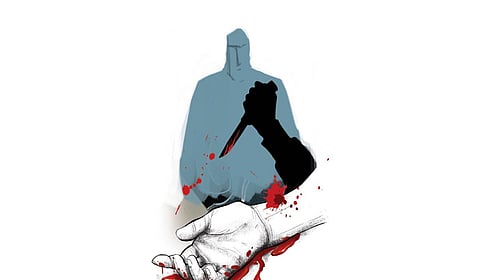

VILLUPURAM: Two judgments by the SC/ST Special Court in Villupuram on Friday, acquitting all the accused in two different caste clashes have raised serious concerns over the quality of prosecution and the denial of justice for victims in the incidents.
The Special Court on Friday evening acquitted 20 accused in the 2013 Marakkanam violence that broke out between Vanniyars, predominantly belonging to the Pattali Makkal Katchi, and the Dalits.
In another judgment in the case regarding the caste clash in Periyasevalai near Thiruvennainallur in Villupuram district in 2016, the special court ruled that 72 out of the total 97 accused not guilty and acquitted them. The case against remaining 25 was dismissed on the grounds of death or deletion of names.
The key reason for the acquittals in both the cases appears to be the lack of evidence to prove the involvement of the accused.
On midnight April 25, 2013, violent clash broke out at Marakkanam among local Dalit residents, many owing allegiance to the Viduthalai Chiruthaigal Katchi, and Vanniyars proceeding to attend the Chithra Pournami youth festival, organised by the Vanniyar Sangam, the parent organisation of the PMK, at Mamallapuram.
Several tenements, shops of Dalits, and a few vehicles, including government buses, were torched and a lot more damaged.
Two PMK cadre died in the violence. Six Dalits were convicted by a sessions court in Villupuram district in 2016 for the deaths in contrast to the acquittals of all caste Hindus by the SC/ST Special Court on Friday.
At Periyasevalai, clash broke out allegedly over a name board at the junction of Periyasevalai and Saravanapakkam, since the board carried the name of the latter, which is predominantly a Dalit settlement.
The case in the SC/ST (Prevention of Atrocities) Act was filed after the clash resulted in the alleged damage of several properties belonging to the Dalits.
Speaking to TNIE, Villupuram MP and Viduthalai Chiruthaigal Katchi general secretary D Ravikumar expressed concern that such acquittals in caste violence are becoming a growing trend.
“The irony is that these cases are dismissed in the special court that function exclusively for hearing caste atrocities meticulously. Despite such infrastructure, the prosecution fails to prove the authenticity of the cases, make the cases weaker and thereby the accused get a free pass. This lethargy of the prosecution must be questioned and changed to ensure justice for the victims,” he said.
Ravikumar stressed that it becomes more difficult to prove cases of mass violence unless solid evidence and witnesses are produced.
Advocate U Karkee in Villupuram said, “Such cases resulting in acquittal despite the brazenness and openness of the violence is worrying. This will give an upper hand to the perpetrators and fail those who suffered loss of lives and properties in the clash. Moreover, the compensation for the victims (under the SC / ST PoA Act) will be cut because of such acquittals.”
Karkee added that Chief Minister MK Stalin’s recent statement mentioning a six per cent drop in SC/ST PoA cases as a positive trend should also be seen in the context that the affected community may not be coming forward to report incidents due to their lack of faith that they would be rendered justice.
‘Lack of faith’
CM’s recent statement mentioning a 6% drop in SC/ST cases as a positive trend should be seen in the context that the affected community may not be coming forward to report incidents due to lack of faith that they would be rendered justice, says Advocate U Karkee.